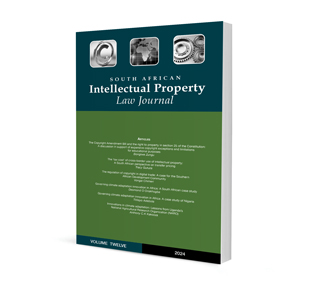
The clock is ticking for the Sustainable Development Goals: A geographical indications-based intervention in the quest to end poverty

The clock is ticking for the Sustainable Development Goals: A geographical indications-based intervention in the quest to end poverty
Author Tendai Mikioni
ISSN: 2521-2591
Affiliations: Doctoral Researcher, South African Research Chair: Intellectual Property, Innovation and Development, University of Cape Town
Source: South African Intellectual Property Law Journal, 2025, p. 108-124
https://doi.org/10.47348/SAIPL/v13/i2a5
Abstract
With less than five years remaining before the 2030 deadline, the world finds itself significantly off-track, particularly in realising Sustainable Development Goal 1: Ending poverty in all its forms everywhere. This paper investigates how intellectual property (IP) law, specifically geographical indications (GIs), can be leveraged as a strategic tool in the fight against poverty. By focusing on GIs, a unique form of IP that links products to their geographic origin and associated qualities, the paper highlights their developmental potential beyond commercial protection. Through a multi-jurisdictional analysis, including Penja Pepper (Cameroon), Gambian cashews, Darjeeling tea (India), and Karoo Lamb (South Africa), the study demonstrates both the realised and unrealised opportunities of GIs in uplifting communities and fostering local economies. While acknowledging that GIs alone cannot eradicate poverty, the paper argues that they can play a meaningful role in its alleviation by enabling sustainable livelihoods and economic resilience. One highlights the need to harness GIs as part of a broader strategy to meet SDG 1.